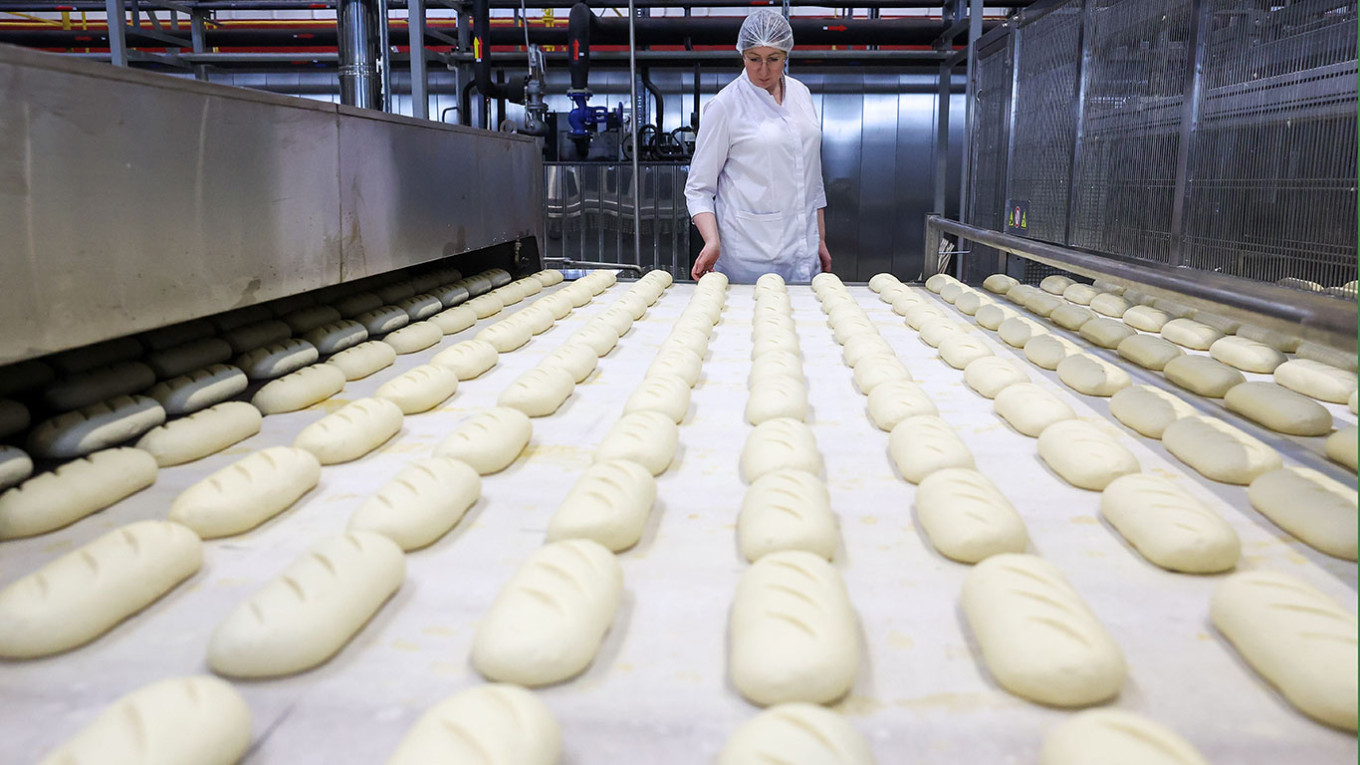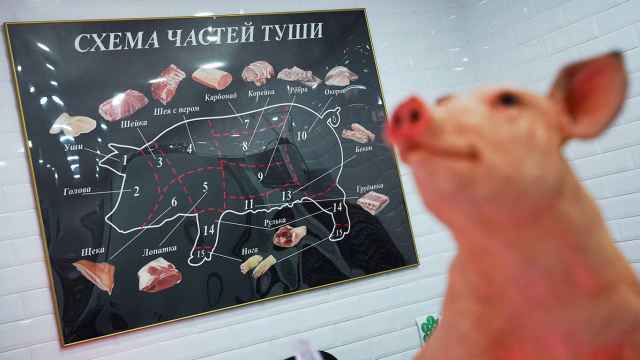Russia’s most popular bread, the sliced white loaf, could vanish from store shelves if authorities proceed with strict price caps on widely consumed goods, the owner of the country’s largest bakery and confectionery holding warned on Monday.
The comments came after Prime Minister Mikhail Mishustin in March said the government was prepared to adopt the “toughest measures” to contain food inflation. He noted in particular that regional authorities have the power to cap markups on staple food products, which last year posted their highest price growth in nine years and continue to grow more costly.
Alexei Tulupov, owner of the Kolomensky bakery, told the RBC news website that bread price caps could force bakeries into bankruptcy, reduce the variety of bread products available or prompt product substitution.
Price regulation for eggs, Tulupov argued, led to the emergence of a lower-quality, cheaper-to-produce liquid egg product.
“If similar measures are applied to bread, sliced loaves could disappear from the market quickly,” he said.
Data from the state statistics service Rosstat show that wheat bread prices rose 14.6% last year, a rate one and a half times faster than overall inflation, which the government placed at 9.5%.
Bread prices climbed by an additional 6.2% from January through May 2025.
Overall, bread prices have surged by more than 35% since the full-scale invasion of Ukraine in February 2022.
Bread production costs also rose by an average of 27% in 2024, Dmitry Semenov, president of the Russian Bakers Union, previously said.
“Current lending rates make loans unaffordable; high profitability is needed to service such debts, but bakeries operate on slim margins,” he said, referring to the Central Bank’s 20% key rate.
Semenov also cited workplace shortages, which reach up to 40% of the staffing levels at individual enterprises.
Tulupov said raw materials, wages and logistics are the primary cost drivers for bread producers.
“Logistics-related expenses are at least equal to, if not greater than, those for flour,” Tulupov told RBC.
These expenses are exacerbated by bread’s short shelf life, requiring it to be delivered to stores as soon as possible.
In March, major bread manufacturers informed retail networks of an additional 10 to 12% increase in wholesale prices, according to major bread producers cited by the Vedomosti business daily.
Producers pointed to increased warehousing and transportation costs, higher tax burdens and the jump in flour prices following a poor harvest last year as the biggest factors behind the price hikes.
A Message from The Moscow Times:
Dear readers,
We are facing unprecedented challenges. Russia's Prosecutor General's Office has designated The Moscow Times as an "undesirable" organization, criminalizing our work and putting our staff at risk of prosecution. This follows our earlier unjust labeling as a "foreign agent."
These actions are direct attempts to silence independent journalism in Russia. The authorities claim our work "discredits the decisions of the Russian leadership." We see things differently: we strive to provide accurate, unbiased reporting on Russia.
We, the journalists of The Moscow Times, refuse to be silenced. But to continue our work, we need your help.
Your support, no matter how small, makes a world of difference. If you can, please support us monthly starting from just $2. It's quick to set up, and every contribution makes a significant impact.
By supporting The Moscow Times, you're defending open, independent journalism in the face of repression. Thank you for standing with us.
Remind me later.






